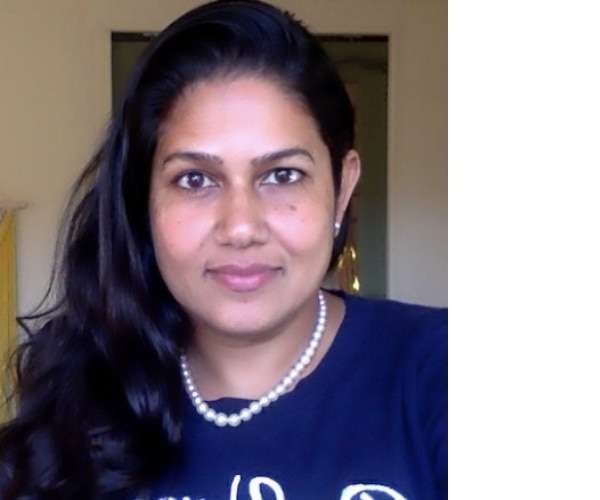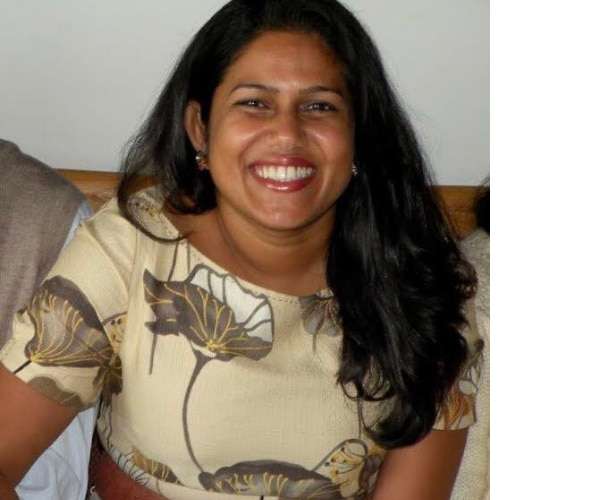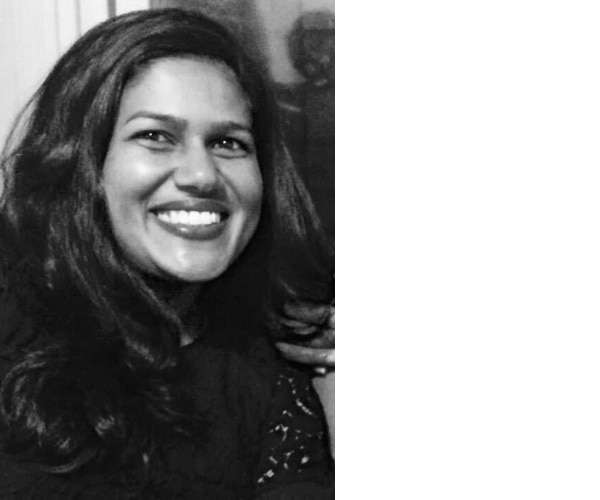
Apr 06 2021.
views 811Sri Lanka has a long way to go in terms of establishing a sound system of inclusive education. However, certain progress is being made at an individual capacity. With over 20 years of experience as a Behaviour Analyst, Sri Lankan born Menaka De Alwis continues to be inspired and learn from children with autism at her home in the San Francisco Bay Area. Gracing this month’s Women at Work cover is Menaka, who shared her experiences as a Behaviour Analyst, her inspirations, the importance of inclusive education along with a few lessons that Sri Lanka could take from how this subject is approached in San Francisco.

WHAT INSPIRED YOU TO PURSUE A CAREER IN THE FIELD OF PSYCHOLOGY?
My work is actually within behaviour analysis, not traditional psychology. I was inspired to pursue a career in applied behaviour analysis after working with a 3-year-old with autism while studying psychology and sociology in college. I provided behaviour intervention services to this child for up to 15 hours each week. As I watched the incredible progress the child was making, I immediately fell in love with the science of behaviour and wanted to learn more about it. After I graduated from college, I worked with students with autism in public schools as a 1:1 behaviour interventionist for a couple of years. It was an invaluable learning experience that heavily influenced my decision to get my Master’s degree in Applied Behaviour Analysis at Teachers College Columbia University.
After a year and a half of intensive study and full time work in New York City, I returned home to the San Francisco Bay Area to teach special education at a public elementary school. Over the next several years, I worked alongside talented support staff and colleagues, caring parents and family members to teach students with differing needs. Although I’ve been working with students with autism and other needs for over 20 years, I continue to be inspired by them and continue to learn from them every day.
TELL US ABOUT THE ROLE OF A BEHAVIOUR ANALYST.
Behavior Analysts work in various disciplines including education, sports and fitness, organizational behaviour
management, clinical behaviour analysis, autism and intellectual developmental disabilities, sustainability, behavioural gerontology, health and fitness, brain injury rehabilitation, behavioural paediatrics, prevention/intervention in child maltreatment, and treatment of substance abuse disorders. My current role is as a Behavior Analyst within a large, urban public school district. I work with preschool students, between
the ages of 3-5, who receive special education services, primarily those with autism. I oversee the behaviour intervention services team, support teachers and support staff in classrooms, conduct parent/caregiver and staff training, and conduct behaviour assessments. There are additional behaviour analysts in our school district who support students in a variety of areas such as general education, at-risk, section 504, special education, and court education programmes.
I am a Board Certified Behaviour Analyst (BCBA) which is a national certification that is gained following a Master’s
degree and rigorous coursework in behaviour analysis, 1500 hours (soon to be 2000 hours) of supervised fieldwork or practicum, and passing of the national certification exam. There are additional national certifications related to behaviour analysis.

MENTAL HEALTH IS STILL AN AREA THAT NEEDS IMPROVEMENT AND MORE DIALOGUE IN SRI
LANKA. WHY DO YOU THINK SUCH TOPICS ARE A TABOO IN THE ASIAN CONTEXT?
I think that mental health issues and developmental and learning differences are still considered taboo in many parts of Asia because there is not enough acceptance and normalization of it. There is much shame associated with such differences and people blame superstitious causes instead of genetic and environmental causes. I believe that we must start by increasing awareness and educating society about mental health concerns and developmental and learning differences. We must also offer resources to support the families of children and people with mental health or learning differences and should prioritize training for educators. We must offer them support and resources to be as productive members of society as possible.
WHEN IT COMES TO THE SCHOOL SETTING THERE AREN’T MANY SHADOW TEACHERS TO ASSIST
SUCH CHILDREN. YOUR COMMENTS?
Some students with special needs benefit from learning in a small group or even in a 1:1 setting when first beginning intervention. Having a ‘shadow teacher’ with a student in a larger group may not be as beneficial as teaching that student in a smaller group until that student is ready for the larger group. It’s also important that the ‘shadow teacher’ has adequate training and knows when to provide support and when to pull back support. The ‘shadow teacher’ shouldn’t be attached to the child at all times, instead, they should promote independence and should allow the child to demonstrate skills on their own.
Children with special needs should be instructed by teachers with specialized training and credentials as they require carefully crafted and data driven instruction. Students with special needs should be taught using evidence-based practices, not pseudoscientific interventions. Many evidence- based practices for people with autism and
other learning differences are based on the science of behaviour analysis. Unfortunately, there is an active lobby and campaign against many of the science-based interventions to help people with autism and developmental and learning challenges. Families are often bombarded by fad, miracle cures and interventions and are overwhelmed by the sheer number of options. It is imperative that we promote and encourage the practice of science-based interventions when educating and treating people with autism and other developmental and learning differences.
INCLUSIVE EDUCATION IS ONLY PRACTISED IN A HANDFUL OF SCHOOLS IN COLOMBO AND SUBURBS.
HOW DOES INCLUSIVE EDUCATION HELP?
Inclusive education should be practiced across schools as much as possible. However, it should be done thoughtfully and it should be individualized to meet the specific needs of the students. Often schools flaunt that they are inclusive, simply because they enrol students with learning differences, but the students are separated from the larger group (e.g. sitting in the back with their 1:1 aide) and are treated through a lens of pity and sympathy. In addition, the students face a lot of bullying from their peers and are passed through the grades without expectations to learn content.
Students should be considered a member of the school community first, regardless of their learning differences. These learning differences should be supported by providing them with individualized and differentiated instruction and supports based on evidence-based interventions while providing them with opportunities to engage with the larger school community. Students with different needs may require intensive 1:1 and/or small group instruction initially to help teach foundational learning skills that will ultimately allow them to participate more effectively within the school environment in a truly inclusive manner. Simply placing a child with different needs in a classroom or school with their peers without careful planning and adequate support is a recipe for disaster.
TELL US ABOUT THE MOST SATISFYING AND THE MOST CHALLENGING ASPECTS IN YOUR CAREER.
One of the most satisfying aspects of my career is seeing students learn skills that have a direct impact on their daily lives in a socially significant way. Every time a young child learns to ask for milk instead of screaming and falling to the floor or learns how to play functionally with a new toy with their sibling, I am overjoyed. In addition, it is also very rewarding when parents/caregivers and school staff learn how to successfully teach skills to students with autism and other learning differences. It is also heartwarming when parents/caregivers reach out to me months or years after I worked with them to let me know that their child is graduating high school or college, or that they are now independently doing their laundry, or that they are using an augmentative communication device
successfully to communicate. Every small gain and accomplishment is valued and celebrated fully as they are the building blocks towards more complex skills.
The most challenging aspect of my career is dealing with the equity issues related to providing quality, evidence-based interventions to students with autism and other learning differences. Although there are laws in place to provide support for people with different needs within the United States educational system and society at large, there continue to be barriers when accessing quality instruction and intervention services.

FUTURE ASPIRATIONS?
I was recently awarded a federal leadership grant to pursue my PhD in Special Education at the University of Oregon. I will be moving to Oregon to begin my studies as a PhD student in the fall.
0 Comments